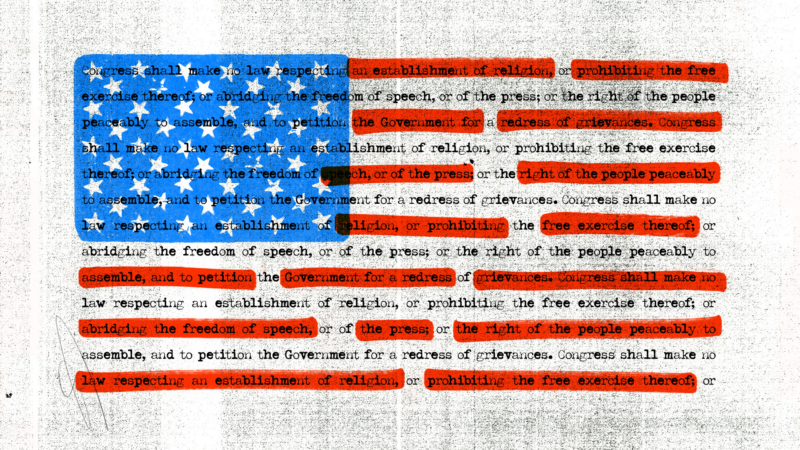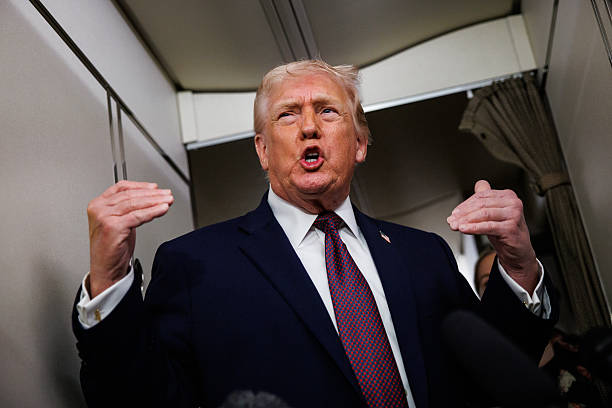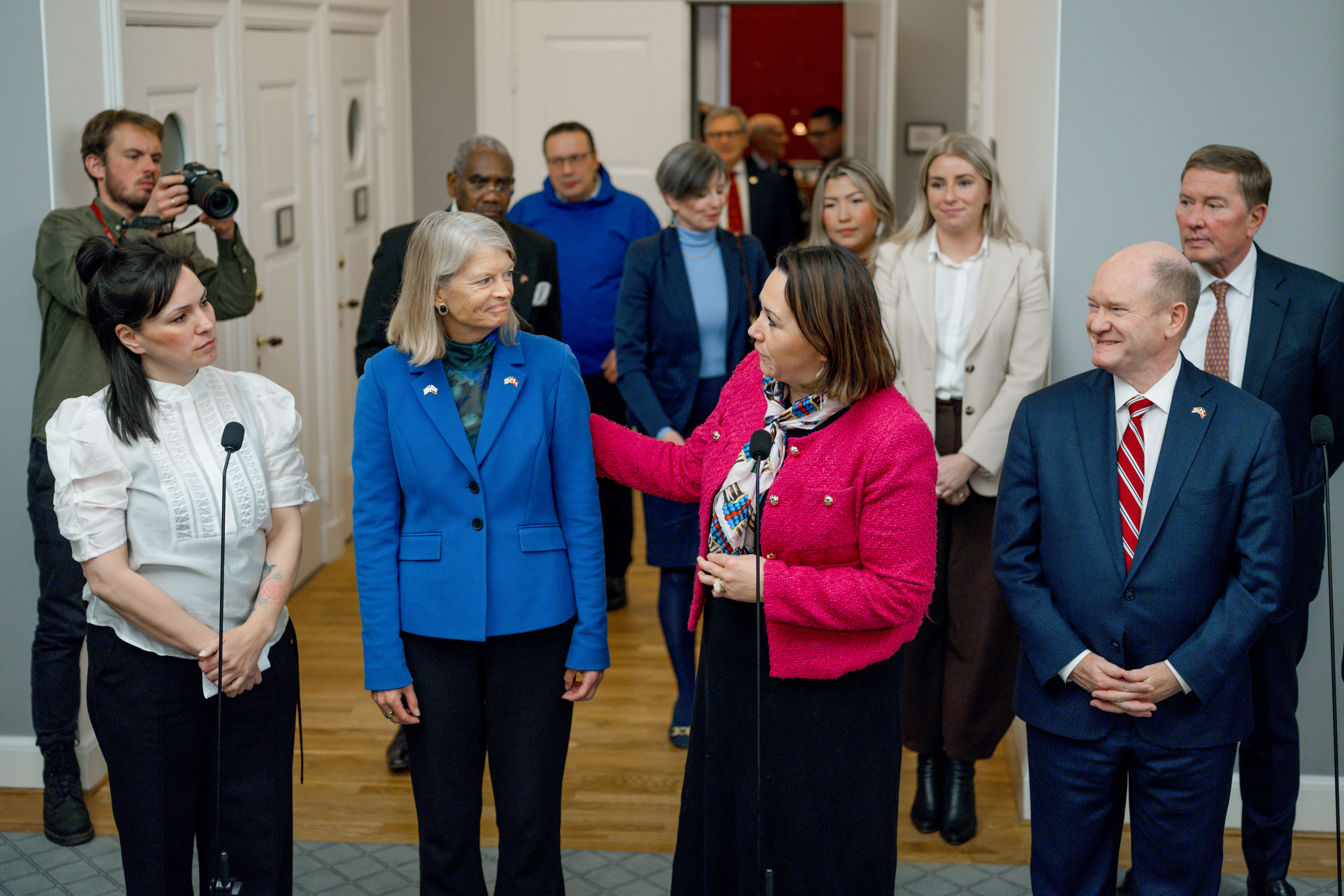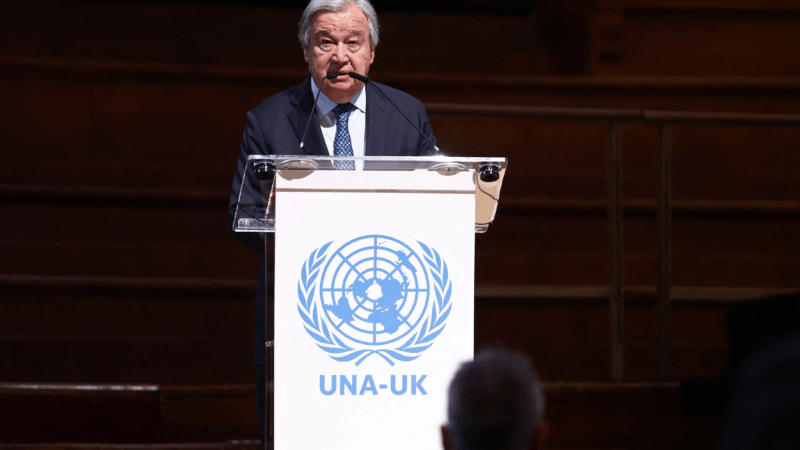Freedom of speech is shifting under the Trump administration. We’re exploring how
Many Americans are worried that their First Amendment right to free speech is fading.
NPR’s Morning Edition has talked to legal experts, activists, immigration lawyers, scientists, students, teachers and others over several weeks to understand why.
Our series “The State of the First Amendment: The Right From Which All Other Rights Flow” will explore who felt censored before President Trump returned to office and who feels stifled now.
Our reporting found scientists are scrubbing reports and federal grant applications of words the Trump administration has banned. Some student activists are afraid participating in protests could lead to deportation. Teachers are nervous about a new online portal where students or parents can file complaints about diversity, equity, and inclusion lessons in class with the U.S. Department of Education.
“When students make connections to events in history that don’t frame the current administration in a positive light and then ask questions, it gives me pause,” says E., a high school history teacher, who asked NPR to use only her first initial for fear she could be reported for speaking out. “I’ve had to hold back, sometimes changing the subject abruptly, telling them that I can’t comment.”
Tune in to NPR and visit NPR.org every day this week for in-depth stories on “The State of the First Amendment: The Right From Which All Other Rights Flow.”
Yet plenty of others, including anti-abortion activists, the far-right activist group Moms for Liberty and members of university Republican clubs, say they feel more free today to express views without fear of a backlash now that President Trump is back in office.
“We now have more members who are willing to help us publicize the club, attach their faces to the club, and be outwardly and openly conservative than we did before the election,” says Miguel Muniz, President of the College Republicans at UC Berkeley.
Free speech ranked as the second most important issue for voters heading into the 2024 presidential election, ahead of crime, immigration and healthcare, according to a poll by the Foundation for Individual Rights and Expression taken a month before the election. Republicans were more likely to rate it “very important” and nearly half of Republican respondents said they spoke less freely under President Biden than they did under President Trump.
Loading…
That may be why soon after President Trump was sworn back into office, one of the first actions he took was to sign an executive order aimed at “restoring freedom of speech and ending federal censorship.”
His critics say his concern for free speech is only for speech his administration finds acceptable.
You can find all the stories in this series here.
Trump has rolled out many of the Project 2025 policies he once claimed ignorance about
Some of the 2025 policies that have been implemented include cracking down on immigration and dismantling the Department of Education.
U.S. lawmakers wrap reassurance tour in Denmark as tensions around Greenland grow
A bipartisan congressional delegation traveled to Denmark to try to deescalate rising tensions. Just as they were finishing, President Trump announced new tariffs on the country until it agrees to his plan of acquiring Greenland.
Can exercise and anti-inflammatories fend off aging? A study aims to find out
New research is underway to test whether a combination of high-intensity interval training and generic medicines can slow down aging and fend off age-related diseases. Here's how it might work.
The 2026 Olympics are the most widespread in history. See what’s happening where
Competitions will be hosted at 25 venues spanning an area of more than 8,000 square miles. Here's what's happening at each of the four main clusters.
High-speed trains collide after one derails in southern Spain, killing at least 21
The crash happened in Spain's Andalusia province. Officials fear the death toll may rise.
United Nations leaders bemoan global turmoil as the General Assembly turns 80
On Saturday, the UNGA celebrated its 80th birthday in London. Speakers including U.N. Secretary-General António Guterres addressed global uncertainty during the second term of President Trump.






